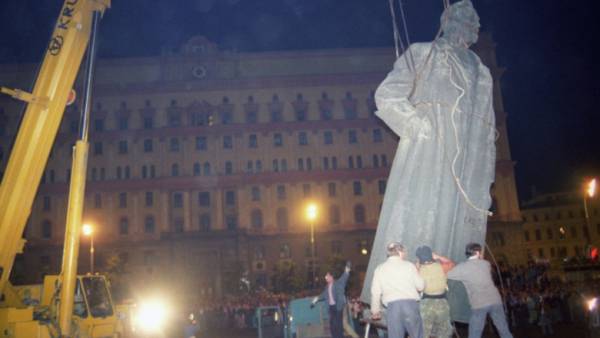The Russians were kinder to treat the KGB and the Cheka
Less people in the country associate these structures with the political terror and repression of dissent.

The attitude of Russians to the Soviet intelligence services has improved markedly over the last 20 years: they become less associated with the political terror and more — with the protection of the interests of the state, reported “Interfax” in the “Levada-Center”.
So, to answer the question, what was the all-Russian extraordinary Commission (Cheka), only 12% of respondents have linked its activity with the political terror and repression of dissidents in 1997, these answers were twice as many (23%).
Also the Cheka less associated the Russians with the “fight the enemies of Soviet power, counter-revolution and sabotage” (32% vs. 40% in 1997) and fight against crime (28% vs. 42% previously). While more of the respondents associates the Cheka counterintelligence (15% vs. 9% earlier) and intelligence (13% vs 8%).
In addition to the survey, pollsters revealed an increase of positive associations with the activities of the state security Committee (KGB).
Now 41% of Russians believe that the KGB was engaged in protection of interests of the state, and in 2000 thought so 22%. The proportion of respondents who assotsiirovannyh KGB repression, was reduced to 17% from 22% in 2000.
The increase in negative associations with the KGB minor: if in 2007, with surveillance and denunciations of the KGB linked 15%, now — 19%. Since 2000, more respondents believe that the KGB were “professionals, and fools are not kept” (the share of such respondents has increased from 12% to 15%). Another 15% of Russians associate the KGB and the fight against corruption during the Brezhnev and Andropov years (in 2000 this was said 8%).
The survey was conducted January 19-23 among 1,600 people aged 18 years and older in 137 localities of the 48 regions of the Russian Federation. The statistical error does not exceed 3.4%.